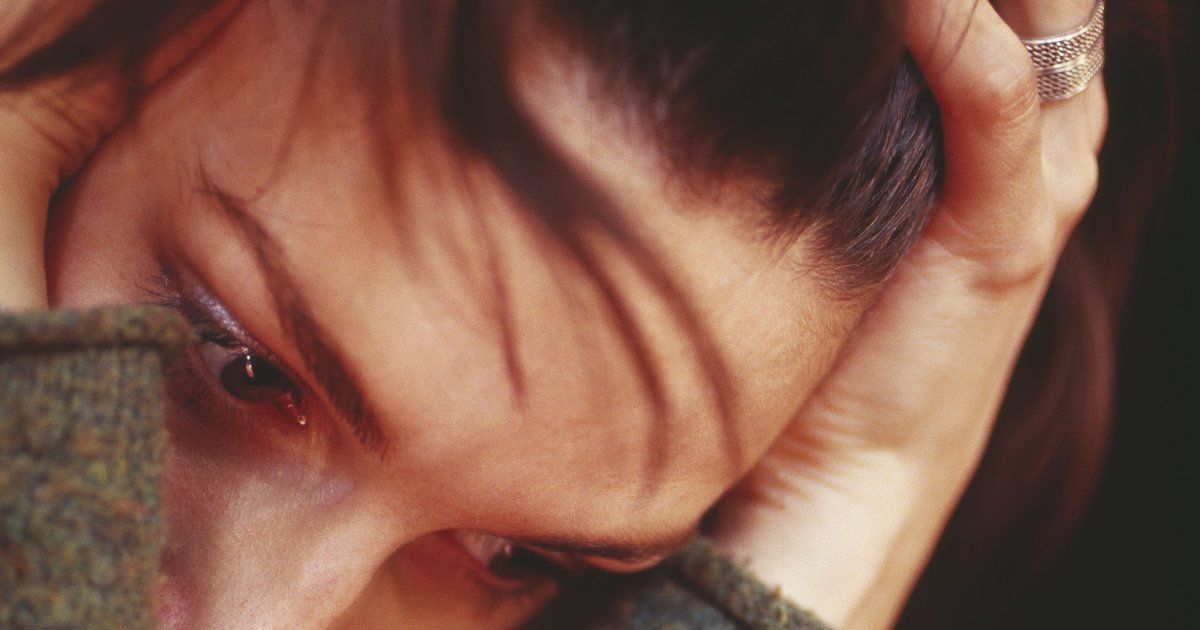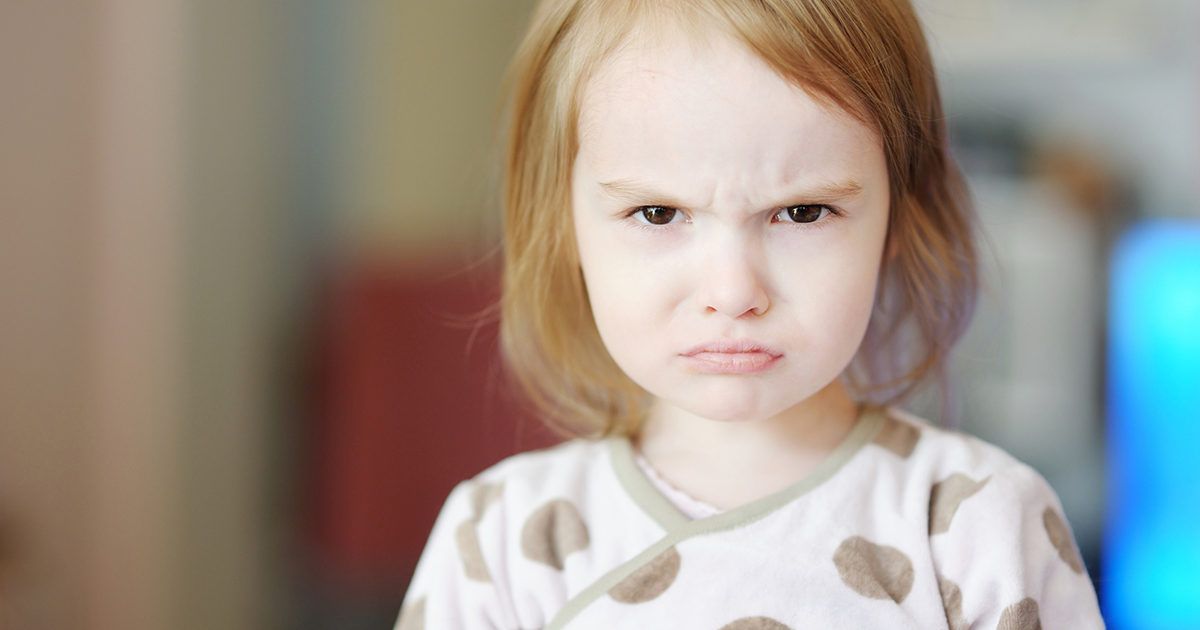Conditions And Causes Linked To Passive-Aggressive Behavior
Passive-aggressive behavior is a pattern of behavior where instead of expressing negative feelings directly, an individual communicates them through subtle actions. There's a dissonance between what they're saying and what they're doing. One common example most are familiar with is saying, "I'm fine," or "It's fine, I don't care," but then continuing to act upset and behave with anger or coldness. A more difficult-to-spot form of passive aggression might involve an individual purposefully sabotaging a plan they said they supported. Passive aggression tends to come with hostility and bitterness toward the requests of others, intentional mistakes or delays when completing these requests, a cynical and pessimistic demeanor, and frequent complaints about being deceived or underappreciated. While this behavior isn't considered a distinctive mental illness, it can be a sign of multiple mental disorders.
Anxiety Disorders

Anxiety disorders have been linked to passive-aggressive behavior. Individuals with heightened anxiety often have a difficult time with direct confrontation. They may exhibit passive-aggressive behavior because they're too anxious to have a frank discussion about feelings. There's even an anxiety disorder called avoidant personality disorder, which is characterized by an affected individual avoiding conflict at all costs, even at the cost of their own physical and mental wellbeing. Individuals with heightened anxiety may also have a more generally negative outlook on life. In some, a neurochemical imbalance causes the brain to acknowledge bad things far more sharply than good things. Neurochemical imbalances can usually be treated with mental health medication. For individuals whose passive-aggression is interfering with their lives and the lives of those around them, it's a good idea to pair medication with talk therapy. In therapy, patients learn how to communicate effectively, keep a positive outlook, and deal with the anxious feelings that confrontation causes.
Continue reading to reveal more conditions and causes linked to passive-aggressive behavior now.
Bipolar Disorder

Bipolar disorder has been associated with passive-aggressive behavior, as has depression. With bipolar disorder, a chemical imbalance in the brain leads to strange shifts in a patient's energy, mood, activity levels, and functionality. Moods tend to cycle between extreme highs and lows. During 'up' periods, otherwise known as mania, patients exhibit energized and elated behavior. They may start and abandon many projects in quick succession or act impulsively. Following this, there are 'down' periods of sadness, hopelessness, lethargy, and inability to complete basic tasks. Having bipolar disorder doesn't automatically mean an individual will exhibit passive-aggressive behavior. However, like other mood disorders, bipolar disorder causes irrational changes in perspective and emotional regulation. Depressed bipolar disorder patients are more likely to have a negative or aggressive outlook than neurotypical individuals. If a bipolar disorder patient has never been taught how to express their emotions and thoughts in a healthy way, they may come out through passive-aggressive behavior.
Understand more conditions and causes of passive-aggressive behavior now.
Increased Stress

Increased stress can often lead to passive-aggressive behavior. If an individual already had a tendency to exhibit this behavior, stress will likely make it worse. Stress takes a toll on a patient's psychological well-being and makes it difficult to tolerate annoyances, inconveniences, or upsets. The things others do may suddenly be annoying or overbearing when they'd never been bothersome before. The problem is, if someone doesn't communicate this, others have no way of knowing their behavior is bothering them. It's important for individuals to learn to communicate their emotional needs to others in their life. If they're stressed, they should tell their loved ones and ask them for space and support. Some friends and couples will create systems to use when one of them is stressed, such as familiar routines that allow space while meeting the individual's needs. It's always more effective for individuals to explain they're struggling with stress than to expect another person to interpret passive behavioral cues.
Get more details on conditions linked to passive-aggressive behavior now.
Schizophrenia

Schizophrenia is a serious mental disorder that affects an individual's thoughts, feelings, and behaviors. A patient with untreated schizophrenia might seem out of touch with reality. Symptoms tend to manifest between the ages of sixteen and thirty, but there have been cases where symptoms presented earlier or later. The disorder has 'positive' symptoms, which include psychotic behaviors like delusions, hallucinations, dysfunctional thoughts, and agitated movements. The 'negative' symptoms cause disruptions to normal behaviors and emotions, including a reduction in emotional expression, reduced ability to feel pleasure, reduced speech, and difficulty beginning or staying focused on activities. With schizophrenia, passive-aggressive behavior is sometimes related to delusions. An affected individual may behave aggressively or feel detached from their loved ones if they believe they've done some wrong. The flattened emotions might also contribute to passive-aggressive behavior. Schizophrenia is generally treated with medications and therapy. With the right medication adjustment, a schizophrenic patient may begin feeling more in contact with reality and emotionally in tune with others.
Learn more about the causes and conditions associated with passive-aggressive behavior now.
Oppositional Defiant Disorder

Oppositional defiant disorder is a mental disorder that presents with patterns of anger, combative behavior, defiance, and arguing. Patients with this condition usually begin exhibiting symptoms during their preschool years. In some cases, the symptoms may manifest later, but it's extremely rare for them to develop later than an individual's early teen years. The behaviors have negative consequences in a patient's work, school, social activities, and familial relationships. Oppositional defiant disorder patients lose their tempers easily and often, are easily annoyed by others, and often exhibit anger or resentfulness. They also argue with authority figures and adults, defy rules and requests, deliberately cause upset or annoyance to others, and often blame others for their own behaviors. There's also spiteful and vindictive behavior. Individuals with this condtion tend to feel like everyone around them is a problem, and they may not see issues with their own actions. Because the goal of many interactions is defiance and conflict-starting rather than conflict resolution, they may exhibit passive-aggressive behavior because they believe others deserve it. Oppositional defiant disorder is generally treated with therapy to learn skills and manage aggressive behavior. If other mental health disorders occur alongside this condition, medication and additional therapy might be helpful.
